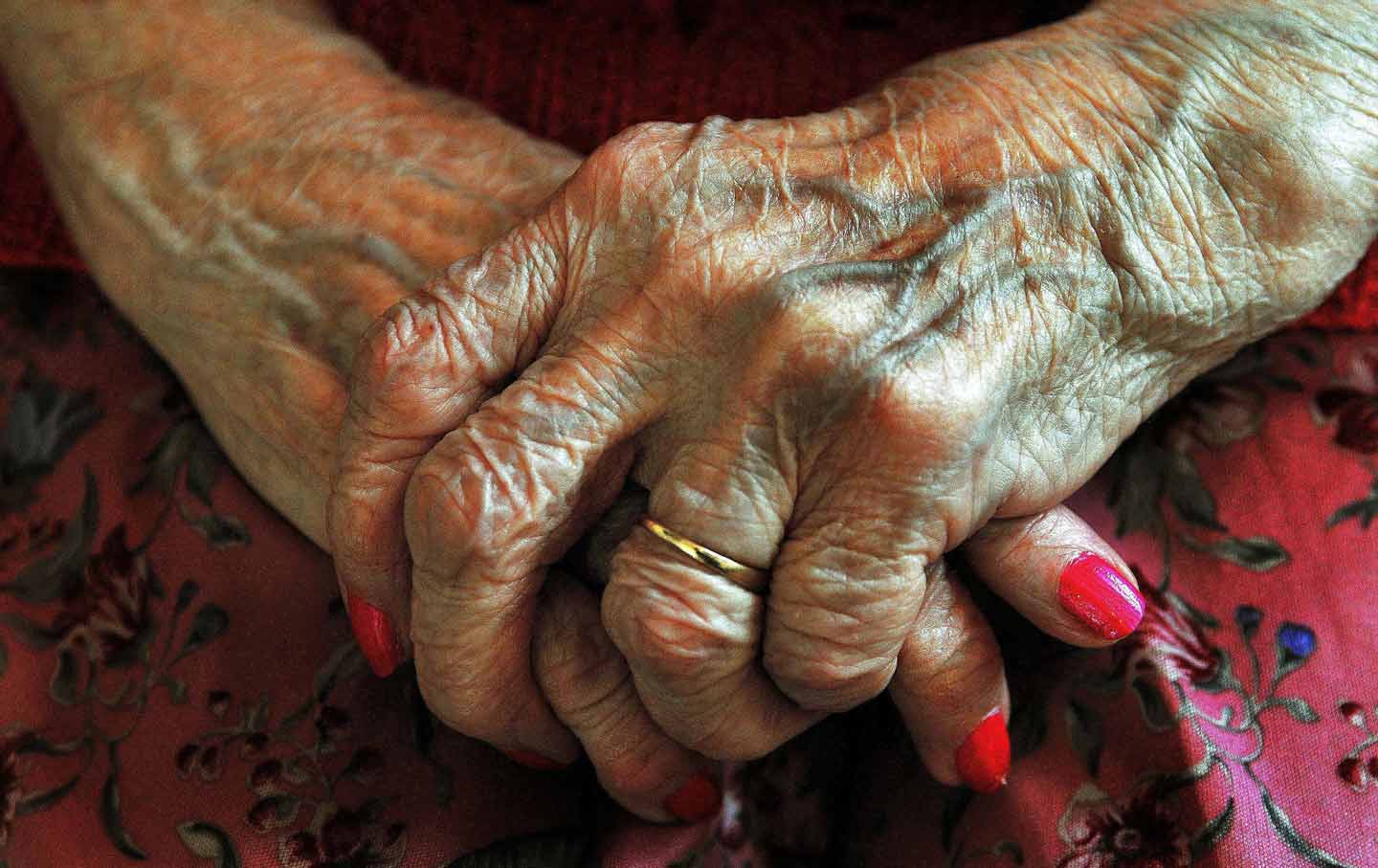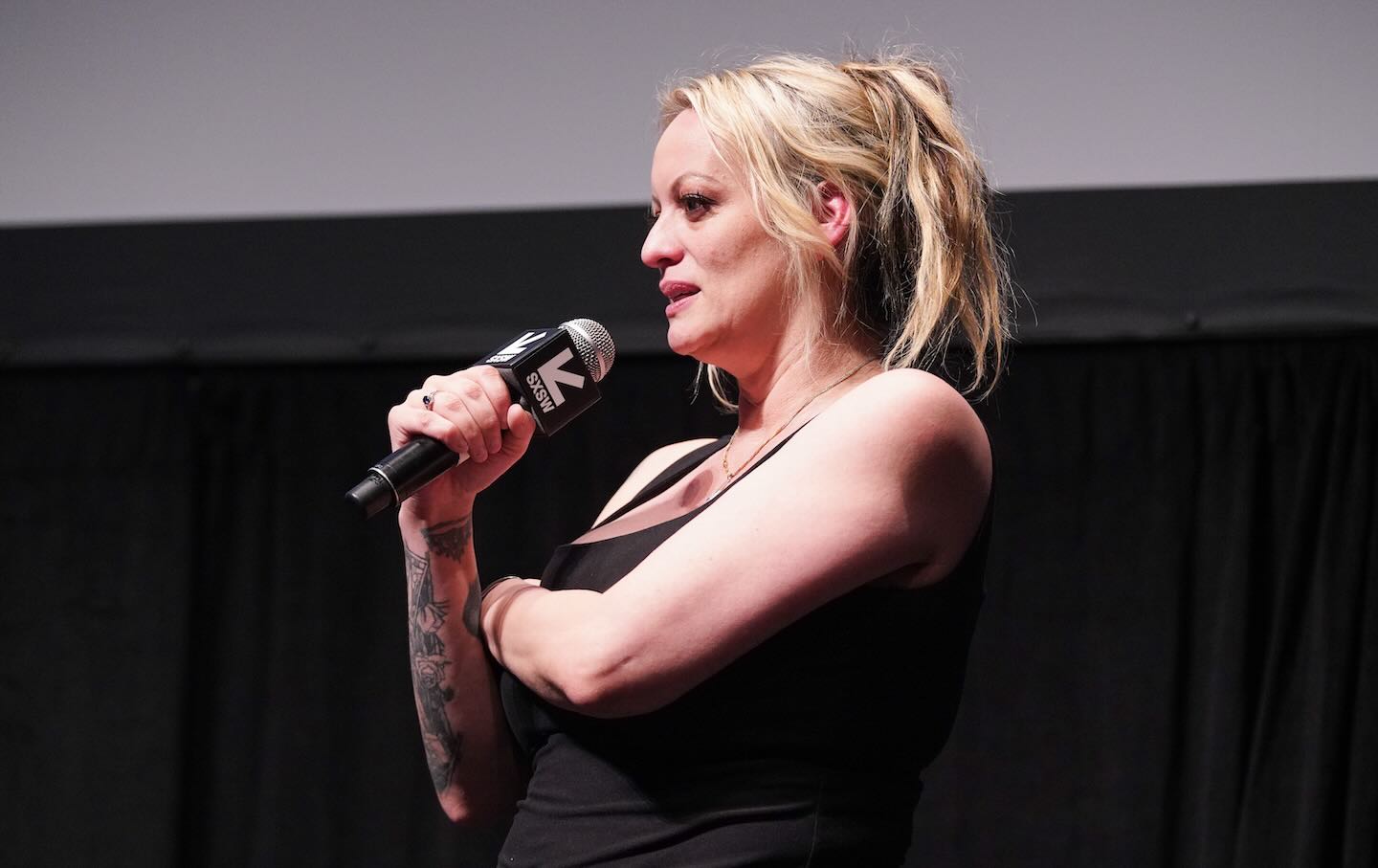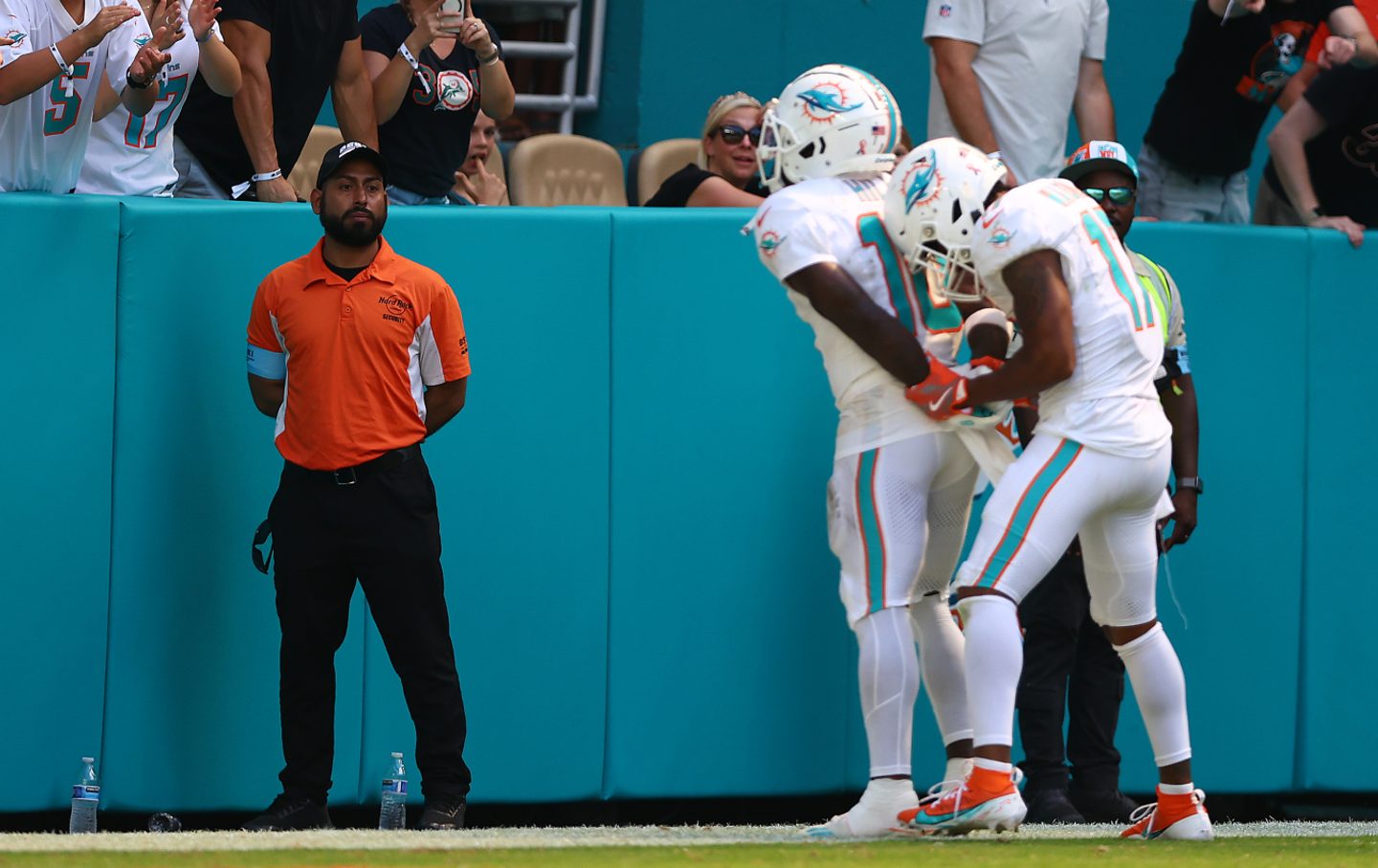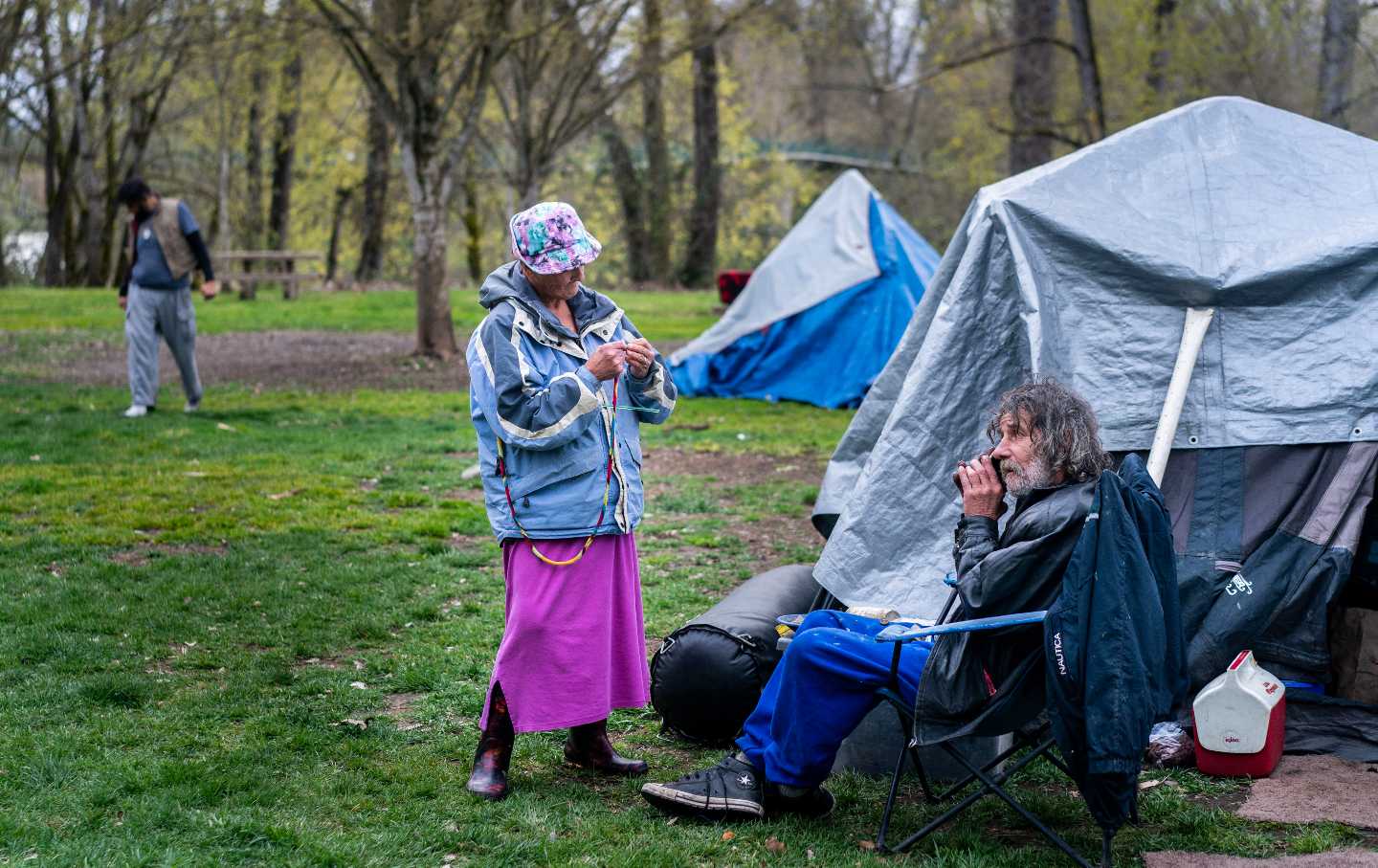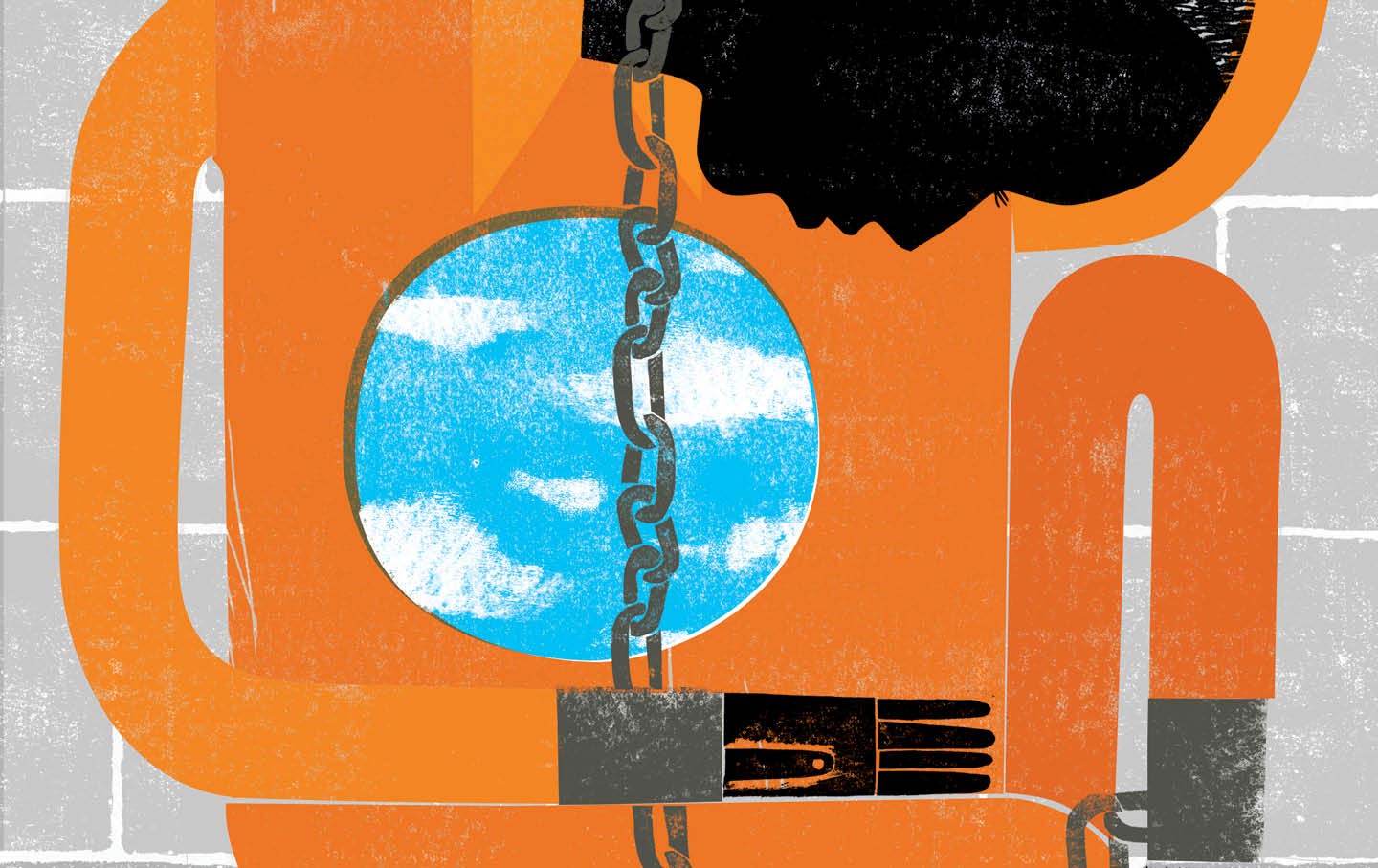Cornell University Workers Strike as Students Return to Campus
“We have members who are on Section 8,” said one union representative. “The majority of our members can’t afford to live here in Ithaca, close to their job.”

A crowd of Cornell workers sing and chant as they march around the university’s campus on Friday, August 16, days before the union called a strike.
(Photo: Aaron Fernando)
Ithaca, NY—“When I woke up this morning, I thought I was the mayor of a union town,” said Ithaca Mayor Robert Cantelmo at a rally on Friday, August 16. “And do we settle in a union town?”
The question was received with cheers during a rally on Cornell’s campus in the upstate New York town, where union leaders, workers, residents, students, and faculty built energy, by the hundreds, for a strike that was just days away. In a vote concluding the day before the rally, UAW’s members in Cornell’s service and maintenance unit authorized a strike with an overwhelming majority of 94% in favor of a strike.
By Sunday night at 10 pm, just before student move-in day, the union called a strike. Many members of the union, which represents over 1,200 workers, including dining hall and custodial staff, are now on strike until they can reach an agreement with Cornell. Less than twenty-four hours later, at the Democratic National Convention, UAW President Shawn Fain called out the university, saying, “The American working class is in a fight for our lives, and if you don’t believe me, just last night, blue collar workers—UAW members—at Cornell University had to walk out on strike for a better life because they’re fighting corporate greed.”
“Our only hope is to attack corporate greed head on,” Fain added.
In a public statement regarding the strike, university officials Christine Lovely, vice president and chief human resources officer, and interim provost John Siliciano said, “The University remains committed to bargaining in good faith. We expect that some service and maintenance workers will strike and not report for work, as is their legal right. We also expect that other members of the UAW will continue to work during the strike, as is also their right.”
Since April, the university and the union had been at the bargaining table, attempting to work out the details of a new contract. The previous contract had expired on July 1, and in subsequent weeks, the union began holding rallies, drawing attention to what the union says is Cornell’s lack of seriousness during bargaining sessions.
“The university is still not taking us seriously,” said UAW’s Daniel Vicente at a rally on August 2. Vicente is the director of UAW Region 9, which includes New York, New Jersey, and Pennsylvania. “Frankly, the counterproposals that they are putting out to us are insulting,” said Vicente. “They believe that this is just going to be a regular round of negotiations.”
The difference between university and union proposals dealt with safety concerns, training pay, parking costs, and a host of issues. But a significant disagreement came down to the fact that pay increases have not kept up with rising costs for many years. “We have members who are on Section 8. We have members who can’t pay for ADA updates,” said Lonnie Everett, international servicing representative with UAW Region 9. Everett explained that while the percentage increase the union was demanding may seem large, it would simply catch worker pay up to the current cost of living. “The majority of our members can’t afford to live here in Ithaca, close to their job.”
UAW bargained its previous contract with Cornell without getting anywhere near a strike, but things have changed in the union since the democratic election of Shawn Fain, in March 2023. Union representatives made it clear that increased accountability to membership and increased transparency during bargaining were top priorities.
“There used to be an extremely heavy emphasis on top-down mentality in the union,” explained Vicente, when asked about how the leadership change shifted UAW’s internal decision-making, which appears to be resulting in more strikes on a national level. “We have been given a completely different mandate from Shawn Fain. It is from the bottom up. If the locals…are making demands, and they are saying, ‘No, our membership demands this, we’re putting our foot down,’ our job is just to support them in that initiative.”
“We’re taking the same approach that we took with the Stand Up Strike with the Big Three auto plants,” said Wence Valentin III, political director for UAW Region 9, referring to the huge gains the union secured for auto workers last fall. “We’re trying to take that to every location that we have in the UAW. So Cornell is not unique.”
Mayor Cantelmo was not the only elected official to voice support for a strong union contract. New York State Assemblywoman Anna Kelles was also present at the August 16 rally, and said in an interview, “There are several, I think, fundamental issues that they’re talking about. One of them is the conversation about a cost of living adjustment.”
Kelles was speaking about one of the main sticking points between the union and the university. In addition to general wage raises, UAW Local 2300 has been pushing to secure a cost-of-living adjustment (COLA) clause in its contract with Cornell, just as it won with the Big Three auto plants. As reported by Bailey Schulz in USA Today, in the 1970s, COLA clauses were more common in contracts because the country was experiencing years of high inflation, similar to what is happening in today’s economy.
“When you’re at the bottom wage [for] regular workers at Cornell, a cost-of-living adjustment means a lot,” said UAW Local 2300 president Christine Johnson, When asked about if the university seemed willing to budge on that issue, Johnson said no, adding that “they are saying that they don’t know how they would budget for it, and all kinds of excuses.” However, by the final night of bargaining before the strike, the university did offer a COLA clause, but without other counteroffers that would compel the union not to strike.
The effects of inflation and the need for a COLA clause came up often, when speaking with UAW Local 2300 members. “Over the years, you know, it seems as if our paycheck does not go as far,” said Louise Braron, a Cornell custodial worker at a previous rally. “We can tell just going grocery shopping that we don’t buy the foods we once used to buy because we can’t afford them any longer.”
Although it is a relatively small city, Ithaca often finds itself as a forerunner in nationwide labor fights. In 2018, workers at Ithaca’s Gimme! Coffee unionized, forming the first barista’s union in the US, years before hundreds of Starbucks stores unionized.
Yet, a few years later, Ithaca would become ground zero for union-busting activities by Starbucks. By the spring of 2023, after workers in all Ithaca Starbucks locations voted to unionize, the corporation shut down every one of its stores in the city, violating federal labor law in at least one case. In turn, Cornell students organized to hold the corporation accountable, and successfully pressured the university not to renew its contract with Starbucks. This was the beginning of the Starbucks Off Our Campus movement, which spread to a couple dozen campuses, a direct response to the company’s anti-labor practices.
Ithaca’s oversize pace of labor fights for its small size could be partially attributed to the fact that Cornell is home to the renowned Industrial and Labor Relations (ILR) school, which creates an international draw for students who want to learn about labor law. In recent years, students have demonstrated a desire to take their organizing knowledge from the classroom to the streets.
Popular
“swipe left below to view more authors”Swipe →So when Ithaca’s mayor contended that Ithaca was a union town that refused to settle in labor fights, he had a strong basis for doing so. This time around, when it was Cornell workers who entered into a hardball labor negotiation, students and locals—including elected officials—who had grown practiced in these fights readily joined in support.
The presence of Cornell’s ILR school also makes it all the more notable that as an institution, Cornell has been attempting to strong-arm organized labor, sometimes running afoul of unions, as the strike at the start of this semester demonstrates.
In November of last year, graduate students at Cornell voted to unionize with a large majority. Yet contract bargaining between the Cornell Grad Student Union (CGSU) which began in March of 2023, has hit similar roadblocks. In an e-mailed response, the CGSU bargaining committee characterized talks with Cornell with this statement: “Our sessions have been productive and we have reached several [tentative agreements] on important issues, but a major hurdle stems from Cornell’s desire to maintain unilateral power by inserting University policies and academic loopholes into our contract.”
CGSU was the second recent attempt to organize graduate students; in 2017, Cornell graduate students unsuccessfully attempted to unionize. However, the following year, an arbitrator found that Cornell violated federal labor law with an e-mail sent the day before the graduate student unionization vote that implied that pro-union graduate workers would be voting against their self-interest, since a union could result in a reduction of university jobs for them, if it increased costs for the university.
The CGSU bargaining committee voiced support for the UAW effort. “We are in full solidarity with our fellow workers holding Cornell accountable. This institution has its world class status because of its workers, and Cornell has no excuse for not giving their workers a fair contract.”
“For years, we’ve been deprived of what’s a just compensation for our contribution in this community, in this university,” said Mitja Bontempo, who has worked at the Cornell Botanic Gardens for over a decade. “This institution has, at its core, this humanistic mission and vision. And it’s failing.”
But when asked at the rally, a couple days before the strike how he felt about community support, Bontempo’s eyes lit up. “It’s emotional,” he said. “To see a couple of blocks on campus just full red, with people coming together, marching down the street to demonstrate unity and solidarity and demanding better living conditions, better wages… it’s just incredible.”
The 2023–24 academic year ended with a pro-Palestinian encampment and divestment demand of the university from its students, and this new year will kick off with a very visible, and likely messy labor fight. So as they begin their fall semester at Cornell, students are headed onto a campus where the ivory tower keeps pushing up against the grass roots. As Everett and other union reps stated, and as the students will see, there are multiple ways to address an issue: “We can fix this at the table, or we can fix it in the streets.”
We need your support
What’s at stake this November is the future of our democracy. Yet Nation readers know the fight for justice, equity, and peace doesn’t stop in November. Change doesn’t happen overnight. We need sustained, fearless journalism to advocate for bold ideas, expose corruption, defend our democracy, secure our bodily rights, promote peace, and protect the environment.
This month, we’re calling on you to give a monthly donation to support The Nation’s independent journalism. If you’ve read this far, I know you value our journalism that speaks truth to power in a way corporate-owned media never can. The most effective way to support The Nation is by becoming a monthly donor; this will provide us with a reliable funding base.
In the coming months, our writers will be working to bring you what you need to know—from John Nichols on the election, Elie Mystal on justice and injustice, Chris Lehmann’s reporting from inside the beltway, Joan Walsh with insightful political analysis, Jeet Heer’s crackling wit, and Amy Littlefield on the front lines of the fight for abortion access. For as little as $10 a month, you can empower our dedicated writers, editors, and fact checkers to report deeply on the most critical issues of our day.
Set up a monthly recurring donation today and join the committed community of readers who make our journalism possible for the long haul. For nearly 160 years, The Nation has stood for truth and justice—can you help us thrive for 160 more?
Onwards,
Katrina vanden Heuvel
Editorial Director and Publisher, The Nation

